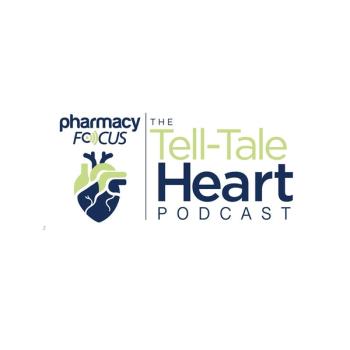
Eli Lily Releases Statement Regarding Tirzepatide Use for Cosmetic Weight Loss
Eli Lilly & Co. has been one of the first companies to address the off-label use of their tirzepatide drugs, Mounjaro and Zepbound, for cosmetic weight loss.
Eli Lilly and Co. has released an open letter addressing the use of Mounjaro (tirzepatide) and Zepbound (tirzepatide) for the use of cosmetic
In the letter, the company wrote, “We are aware of certain practices relating to our tirzepatide medicines that we wish to address publicly to ensure that our medicines are prescribed and used safely . . . Mounjaro and Zepbound are indicated for the treatment of serious diseases; they are not approved for – and should not be used for – cosmetic weight loss.”1
Obesity and weight loss have been a major topic of recent conversation, especially with the rapid growth of new anti-obesity medications (AOMs). In an interview with Pharmacy Times, Jennifer Salvon, RPh, a clinical pharmacist and an adjunct professor at the University of Connecticut School of Pharmacy in Storrs, said that media coverage regarding injectable use of AOMs had contributed to the use of these medications, including both proper and improper use.2 She also noted that the prominence of semaglutide (Ozempic; Novo Nordisk) in pop culture and on social media can play into the unhealthy perceptions of these medications, specifically for cosmetic use and weight loss. She added that younger children are more susceptible to see this information.2
“There was an article about Kim Kardashian, [who] took semaglutide and lost a bunch of weight to fit in Marilyn Monroe’s dress,” Salvon said in the interview. “That’s not good for young [children] to see.”2
In the letter, Eli Lilly added that patient safety is a top priority and said the company is committed to meeting needs of those affected by diabetes and obesity.1 They stand by the indications of the 2 drugs, adding that Mounjaro is indicated to be added to diet and exercise to improve glycemic control for adults with type 2 diabetes and Zepbound is indicated for adults with obesity, defined as a body mass index (BMI) of 30 km/m2 or greater, or those who are overweight, defined as a BMI over 27 kg/m2 or greater, and 1 or more weight-related conditions, to lose weight. The additional conditions can include hypertension, dyslipidemia, type 2 diabetes, obstructive sleep apnea, or cardiovascular disease. Zepbound should be combined with a reduced-calorie diet and increased physical activity, according to the open letter.1
Eli Lilly states that it “does not promote or encourage use of Mounjaro, Zepbound, or any Lilly medicines outside of a medicine’s FDA-approved indication.”1
Additionally, the company states that mixed and combined ingredients for custom medications are not reviewed by the FDA or any other global regulatory agencies for safety, quality, and efficacy, and medications mixed at a compounding pharmacy are not approved by the FDA.1 According to the letter, compounding pharmacies can mix and combine ingredients based on a specific prescription, used to accommodate and personalize medications for patients.1 For example, if a patient is allergic to a specific ingredient, a compounding pharmacist can mix the medication without that ingredient.
The company said that tirzepatide that was not manufactured by Eli Lilly could expose patients to potential health risks. Further, they stated, “products falsely claiming to be Mounjaro, Zepbound, or tirzepatide have not undergone FDA review or review by global regulatory agencies for safety, effectiveness, and quality.”1 The company expressed concern with compounded tirzepatide that contains higher amounts of impurities, and when tested, there was at least 1 instance when the medication was just sugar alcohol.1
Previously, in June 2023, the FDA and Novo Nordisk released a report about counterfeit semaglutide injection pens in the United States.3 The medication was reportedly from a retail pharmacy but appeared to contain another type of diabetic medication that worked differently compared to semaglutide and lead to an adverse event. Novo Nordisk and the FDA also cautioned against medication purchased online or in-person from foreign or unlicensed sources, which included products that were misbranded, adulterated, counterfeit, contaminated, improperly stored or transported, ineffective, and/or unsafe for use.3
Further, in the open letter, Eli Lilly said the drugs should only be used when prescribed by a licensed health care professional, and patients should consult with a health care professional before using either medication.1 Neither drug has been studied in individuals who have severe gastrointestinal disease, which includes gastroparesis, so the company cautions against the use of these medications in that patient population.1
For health care professionals, Eli and Lilly stated that they should review the instructions for both drugs as well as important risks.1
Eli Lilly will also be seeking legal action against certain medical spas, wellness centers, and compounding pharmacies that make and/or sell products that claim to contain the active pharmaceutical ingredient for tirzepatide, according to the letter.1 Legal action will also be taken against importers and distributors of the products and “other counterfeit sources that are fraudulently claiming to sell Mounjaro, Zepbound, or tirzepatide medicines,” the company states.1
Conversations around obesity have been growing rapidly, with calls to relabel obesity as a chronic disease. In a session at AMCP Nexus 2023, presenters defined obesity as a “chronic disease comprised of dysregulated adipose tissue, which increases the risk of developing serious health conditions, including diabetes, cardiovascular disease, and cancer.”4 But current perceptions of obesity tend to focus on “poor choices,” as Eileen Myers, MPH, RDN, LDN, CEDRD-S, FAND, a consultant at Eileen Myres LLC, said in the presentation.
Access to anti-obesity medications is limited for patients who are overweight or those with obesity. Coverage of these medications is limited because obesity is not labeled as a chronic disease. Therefore, there are debates over the pharmacy coverage of medication, surgery, etc, Myres emphasized.4
“The public, educators, [and] health care professionals have mostly looked at obesity as a matter of poor choices,” Myres said in the session. “We all understand now this disease of obesity is not about just making poor choices. The majority is not. The reality is on the other side of the pyramid, where we know the genetic risk [is] 70%, the environment absolutely is a risk factor, and then there are poor choices.”4
Along with these conversations, access to AOMs is also limited by the recent interest. According to an article in Pharmacy Times, there has been an approximate 300% surge in the usage of AOMs over the last 3 years.5 However, prescription volumes and the future of these medications will depend on whether the manufacturers can meet the unprecedented demand for these drugs.5
Reference
- Open letter regarding the use of Mounjaro (tirzepatide) and Zepbound (tirzepatide) News release. Eli Lilly. January 4, 2024. Accessed January 9, 2024. https://investor.lilly.com/news-releases/news-release-details/open-letter-regarding-use-mounjaror-tirzepatide-and-zepboundtm
- Gallagher A. Understanding the Underlying Causes, Challenges of Treating Obesity. Pharmacy Times. August 18, 2023. Accessed January 9, 2024. https://www.pharmacytimes.com/view/understand-the-underlying-causes-challenges-of-treating-obesity
- Gallagher A. FDA, Novo Nordisk Warn of Counterfeit Semaglutide Injection Pens. Pharmacy Times. June 20, 2023. Accessed January 9, 2024. https://www.pharmacytimes.com/view/fda-novo-nordisk-warn-of-counterfeit-semaglutide-injection-pens
- Gallagher A. Current Perceptions Affect Managed Care of Obesity as Chronic Condition. Pharmacy Times. October 18, 2023. Accessed January 9, 2024. https://www.pharmacytimes.com/view/current-perceptions-affect-managed-care-of-obesity-as-chronic-condition
- Shah B. Despite Demonstrated Efficacy, The Future of Antiobesity Medications Depends Largely On Supply. Pharmacy Times. November 7, 2023. Accessed January 9, 2024. https://www.pharmacytimes.com/view/despite-demonstrated-efficacy-the-future-of-antiobesity-medications-depends-largely-on-supply
Newsletter
Stay informed on drug updates, treatment guidelines, and pharmacy practice trends—subscribe to Pharmacy Times for weekly clinical insights.







































